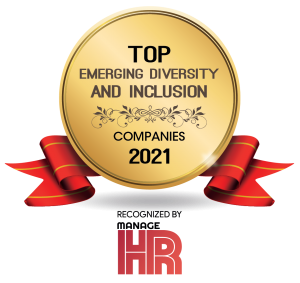
We all know that relationships are built on trust. In the workplace, we rarely have the opportunity to choose how these relationships are initially forged, but it’s possible to create cultures that enable us to navigate these relationships to build trust. Resilience can be encouraged and developed to create work environments where teams feel safe and empowered.
To continue to foster trust and build greater resilience, managers need a deeper understanding of their approach to empowering teams and their communication styles. They need to consider whether they speak and act with integrity, and to honestly assess how well they know their teams.
Change is constant.
In the business environment, we’ve learned that change is ever-constant across technology, markets, customer demographics, and behaviors. When we stand still or choose to ignore change, our businesses and teams can become irrelevant.
To build trust and resilience, well-adapting teams are constantly evolving, never accepting the status quo in task completion, strategies, customer service, or processes. Taking time to learn new things is important and helps to build the resilience needed in today’s market.
Managers need to demonstrate their willingness to learn and grow. Prioritizing time for learning is a mission-critical task. Many times the learning process is sacrificed due to time limitations. At least every quarter, assess what you’ve learned and how you’ve applied and shared that knowledge with your team.
For example, during a periodic check-in with clients, a company received feedback that they were no longer viewed as innovative in their approach. When managers evaluated their internal teams, they realized that groupthink had become prevalent. Subordinates were not comfortable either sharing or challenging ideas. As a result, the same few people tended to monopolize conversations, and ideas were not being deeply considered.
The managers implemented a leapfrog management style where the lower ranks were able to gain access to and meet with leaders who were not their managers. This opened up communications and a more meaningful process to share ideas.
Develop a growth mindset as part of your leadership style.
A positive growth mindset is critical. Your mindset is contagious; it can either empower or hamper your team’s level of energy, enthusiasm, and stamina. Mindset is manifested in your communication style; your tone, pitch, and verbal and nonverbal communications can signal your energy level, excitement, or fear to your team. Your choice of words is important and powerful.
The narrative that you tell yourself is reflected in your behaviors, actions, and communication, and your reaction to failure can impact the team’s capacity to seek out risks and opportunities. Nothing can beat failure other than another try. In an uncertain world, failure should be embraced for the gifts it provides and uncovers.
Among the companies we’ve worked with, I’ve seen how business cultures that don’t foster risk-taking result in fearful teams that are reluctant to embrace change and innovation. Failure can be seen as a learning opportunity. It offers a chance to bring others into the process and build inclusive cultures where teams can foster trust and increase resilience.
Asking your team open-ended questions is one approach to gaining increased understanding. One question people often neglect is “Are you okay?” It’s such a simple question, but when asked, it can provide profound responses that help managers lead their people effectively and build their empathy muscle. A growth mindset does not falter when faced with adversity. Instead, it sees the obstacle as a jungle gym that allows many options and solutions.
How you choose to co-create possibilities with your team can foster trust and build resilience for a stronger company. For example, a company received feedback from a client that the team they were working with was not collaborative. The company’s approach brought in best practices, but lacked flexibility and innovation. The managers reflected on the team structure and realized there was little mentoring and coaching across the organization.
They felt it was important to address the limited knowledge exchange between the top and bottom of the organization. Their answer was to create dual exchanges where learning could occur in a fluid manner regardless of title and tenure. They established a reverse mentoring program to foster learning and ensure that all ranks were heard and felt valued.
Do you know your team?
Take the time to get to know the people you work with. Work is transactional, but people are social and relationship-driven. When team members have a true connection and mutual trust they can not only cooperate but also challenge each other, pull apart problems, and co-create solutions. There’s an amazing magic that happens when we’re able to put down egos, titles, and territorial behaviors in order to increase collaboration.
Some company cultures enable environments that allow their teams to thrive. Other company cultures are competitive, cutthroat, and foster a do-whatever-it-takes-to-win attitude. This is a losing proposition; revenue decreases, relevance to customers is undermined, and employee turnover and costs increase. If you instill a culture of CARE – Curious, Adaptable, Resilient, and Empathetic – employees and the company win together.
The benefits of CARE.
Building trust and resilience in a team is a business imperative. It must be part of your strategy to manage, adapt, and stay flexible in uncertainty. People want to feel valued and respected and know that their contributions matter.
Managers who instill CARE in their teams create a different type of energy where they don’t lead from a place of fear. In a CARE environment, assumptions don’t drive our interactions and people’s insights matter regardless of tenure and title. Curiosity and listening build increased empathy and trusting relationships among teams.
While managing change, understanding the mindset of your team is fundamental. Create a safe environment where sharing is encouraged. Spend the time to understand and get to know your team.
Revenue and transactional elements of business are important, but people are the essential fuel to realizing growth. Implement CARE. CARE fosters a work environment where people feel safe, can build trust, and can experience increased collaboration.




